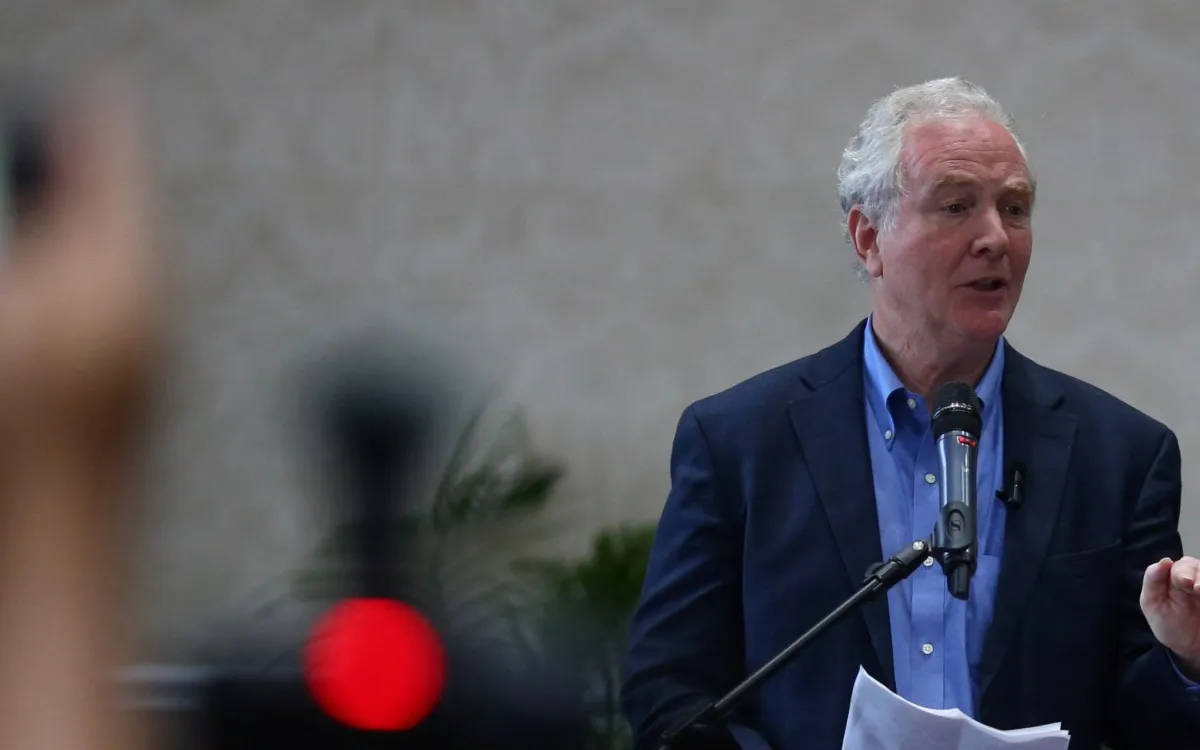
In a recent interview with ABC News, President Donald Trump engaged in a heated discussion with journalist Terry Moran regarding the tattoos of Kilmar Armando Abrego Garcia, a man who was deported to El Salvador in March despite having a court order against his deportation. The focal point of their debate was whether Abrego Garcia had tattoos associated with the notorious MS-13 gang on his knuckles.
During the interview that aired on April 29, Trump referenced an image he posted on his Truth Social platform on April 18, claiming it depicted Abrego Garcia's tattoos. The image showcased four distinct tattoos on Abrego Garcia's left hand, which included a marijuana leaf, a smiley face with an "X" for eyes, a cross, and a skull. Above these tattoos, the letters "M," "S," "1," and "3" were displayed in a printed font, leading Trump to assert, "It says M, S, one, three."
However, Moran challenged Trump's assertion, stating that the interpretation of the tattoos was disputed and that some had claimed they were "interpreted that way." Trump insisted, "Don’t do that. M, S, one, three, it says M, S, one, three." Despite Moran's attempts to steer the conversation towards a different topic, Trump persisted in asserting that Abrego Garcia had "MS-13" tattooed on his knuckles, emphasizing that this tattoo was part of the evidence used for his deportation.
When reporters inquired about the situation, a spokesperson from the White House stated that law enforcement and immigration officials with firsthand experience could link Abrego Garcia's tattoos to the MS-13 gang. However, further investigation revealed that the letters and symbols "M," "S," "1," and "3" did not appear in other recent photographs of Abrego Garcia’s hand, including one taken by Salvadoran officials when he met with Senator Chris Van Hollen Jr. on April 17. Even a family photo shared by immigration advocates did not show these markings.
Experts on MS-13 have indicated to PolitiFact that none of the pictorial tattoos in the photograph are recognized signifiers of the gang. This raises questions about the validity of the claims made by Trump regarding Abrego Garcia's alleged gang affiliation.
The deportation of Abrego Garcia was executed by the Trump administration on March 15 to CECOT, a mega-prison in El Salvador known for housing numerous Salvadoran and Venezuelan men previously in the U.S. Despite having a protection order preventing his deportation, U.S. Immigration and Customs Enforcement (ICE) lawyers admitted to being aware of this restriction, labeling his removal as an "oversight" and an "administrative error."
The Trump administration has consistently claimed that Abrego Garcia and others deported to El Salvador were affiliated with the MS-13 gang, a claim that Abrego Garcia and his legal team have vehemently denied in court. Critics argue that the deportations occurred without due process, as the government failed to present substantial evidence of gang membership before a judge. Reports indicate that most of the 238 men deported to El Salvador lacked any criminal records in the U.S. or documented links to a Venezuelan prison gang.
Experts have weighed in on the significance of the tattoos displayed on Abrego Garcia’s hand. They noted that symbols such as marijuana leaves, crosses, and skulls are commonly used by individuals not affiliated with gangs. Liliana Castaneda Rossmann, an emerita professor at California State University San Marcos, stated, “I don’t believe a dangerous individual would have such anodyne and farcically generic tattoos on his hand.”
Sean Kennedy, a Loyola Law School professor and former federal public defender, remarked that the tattoos in the photo do not resemble typical MS-13 designs. He explained that such markings would likely be seen as a sign of cowardice within MS-13 culture, as gang norms typically demand bold and visible demonstrations of identity and loyalty.
In conclusion, President Trump claimed that Abrego Garcia had "MS-13" tattooed on his knuckles, asserting that the evidence was clear and not open to interpretation. However, the letters and symbols in question do not appear in other verified photographs of Abrego Garcia's hand. Furthermore, experts in gang culture assert that the tattoos shown are not characteristic of MS-13 or other gangs, suggesting that such designs are often used by individuals with no gang affiliation. This case exemplifies the ongoing complexities surrounding immigration, law enforcement, and the implications of alleged gang membership in the United States.